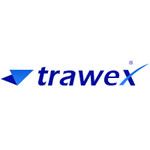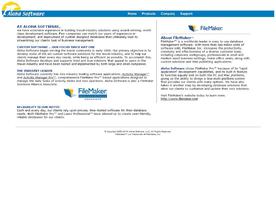How do travel agents make money? Travel agents earn through commissions, service fees, travel packages, and partnerships with travel providers.
Travel agents are professionals who help travelers plan, book, and manage their trips. While many people assume that travel agents work on commission, the reality is that there are several ways that travel agents make money. In this article, we’ll explore the different income streams available to travel agents, as well as the challenges and opportunities of working in the travel industry.

Understanding the Travel Agency Business Model is key to understanding how travel agents make money. Travel agents typically work on a commission basis, which means that they earn a percentage of the total cost of the trip they book. However, this is not the only way that travel agents can make money. Some travel agents charge a fee for their services, while others earn money through selling travel insurance or other add-ons. It’s important to note that not all travel agents work in the same way, and the income streams available to them can vary depending on their business model.
Key Takeaways:
- Travel agents can make money through commissions, fees, and selling add-ons like travel insurance.
- The travel industry is constantly changing, presenting both challenges and opportunities for travel agents.
- To build a successful career as a travel agent, it’s important to stay up-to-date on industry trends and regulations.
Understanding the Travel Agency Business Model
Travel agents are professionals who help travelers plan and book their trips. They work with various suppliers in the travel industry, such as airlines, hotels, and tour operators, to provide their clients with the best options for their needs and budget. But how do travel agents make money? Here are the main ways travel agents earn their income:
Commission-Based Earnings
Commission is the most common way travel agents make money. When a travel agent books a trip for a client, they receive a commission from the supplier, such as an airline or hotel. The commission rate varies depending on the supplier and the type of travel product being booked. For example, airlines typically pay a commission of around 5-10% on the base fare of a ticket, while hotels may pay a commission of 10-20% on the room rate.
Service Fees and Consultation Charges
In addition to commissions, some travel agents also charge service fees or consultation charges. These fees are typically charged for more complex or customized itineraries that require more time and effort to plan. Service fees can range from a flat rate to a percentage of the total trip cost. Travel agents who specialize in luxury or high-end travel may also charge consultation charges for their expertise and access to exclusive travel products.
Markup on Travel Products
Another way travel agents make money is by marking up the price of travel products they sell. This means that they add a certain percentage or amount to the base price of a travel product, such as a flight or hotel room, and sell it to their clients at a higher price. This markup can vary depending on the travel agent and the type of product being sold.
It’s important to note that travel agents are required to disclose their earnings to their clients. This helps ensure transparency and helps clients understand how their travel agent is compensated for their services.
Overall, the travel agency business model is based on building relationships with suppliers and providing valuable services to clients. By understanding how travel agents make money, travelers can better understand the value of working with a travel agent and make informed decisions about their travel plans.
Here is a helpful resource for more information on how travel agents make money.
Different Types of Travel Agents
Travel agents can work in various settings and have different business models. Here are the most common types of travel agents:
Storefront Travel Agencies
These travel agencies have a physical location where customers can walk in and speak with a travel agent. Storefront travel agencies often have a team of agents who specialize in different types of travel, such as cruises, adventure travel, or luxury vacations. They may also offer additional services, such as travel insurance or visa assistance.
Storefront travel agencies typically earn money through commissions from suppliers, such as airlines, hotels, and tour operators. They may also charge service fees for certain types of bookings or for personalized travel planning.
Home-Based Travel Agents
Home-based travel agents operate their business from their home office. They often have lower overhead costs compared to storefront travel agencies, which can result in lower prices for their clients. Home-based travel agents may specialize in certain types of travel or destinations, and they may work independently or as part of a larger network.
Like storefront travel agencies, home-based travel agents earn money through commissions and service fees. However, they may also have more flexibility in setting their commission rates and fees.
Independent Travel Agents
Independent travel agents are self-employed and work on their own. They may have their own website or social media presence to market their services. Independent travel agents often have extensive knowledge of a particular destination or type of travel, which can be valuable for clients seeking specialized advice.
Independent travel agents typically earn money through commissions and service fees, and they may also charge consulting fees for their expertise.
Online Travel Agencies
Online travel agencies (OTAs) operate entirely online and allow customers to book travel arrangements through their website or mobile app. OTAs often offer a wide range of travel options, including flights, hotels, rental cars, and vacation packages. They may also offer additional services, such as travel insurance or 24/7 customer support.
OTAs earn money through commissions from suppliers and service fees. They may also charge convenience fees for certain types of bookings or for personalized travel planning.
According to a report by Statista, the global online travel booking market is expected to reach $817 billion by 2023, indicating the growing popularity of online travel agencies.
Overall, travel agents can earn money through a variety of sources, including commissions, service fees, and consulting fees. By specializing in certain types of travel or destinations, travel agents can provide valuable expertise and personalized service to their clients.
For more information about the different types of travel agents, you can visit Travel Agent Central.
How Do Travel Agents Make Money
Travel agents generate revenue through various income streams. In this section, we will discuss the three primary income streams for travel agents: Travel Product Sales, Group and Corporate Travel, and Specialized Travel Services.
Travel Product Sales
Travel agents earn commissions by selling travel products such as flights, cruises, vacation packages, tours, and travel insurance. The commission rate varies depending on the product and the supplier. For instance, a travel agent might earn a 10% commission for booking a flight, but only a 5% commission for booking a vacation package.
To maximize their earnings, travel agents often specialize in a particular type of travel product, such as luxury travel or niche travel. By focusing on a specific market, they can develop expertise and build relationships with suppliers, which can lead to higher commissions and better deals for their clients.
Group and Corporate Travel
Group and corporate travel can be a lucrative income stream for travel agents. They can earn commissions by booking group travel for weddings, family reunions, and other events. Corporate travel, on the other hand, involves booking travel for business clients, which can include flights, hotels, and car rentals.
Travel agents who specialize in group and corporate travel often have to negotiate with suppliers to get the best deals for their clients. They may also have to handle complex itineraries and make last-minute changes, which requires excellent organizational skills and attention to detail.
Specialized Travel Services
Travel agents can also earn money by offering specialized travel services, such as destination weddings, adventure travel, and luxury travel. These services require a higher level of expertise and customization, which can lead to higher commissions and fees.
For instance, a travel agent who specializes in luxury travel might offer customized itineraries, private tours, and exclusive access to high-end hotels and restaurants. They may also charge a consultation fee for their services, which can range from a few hundred to several thousand dollars.
In conclusion, travel agents generate revenue through various income streams, including travel product sales, group and corporate travel, and specialized travel services. By specializing in a particular market and offering customized services, travel agents can maximize their earnings and provide added value to their clients. To learn more about how travel agents make money, check out this resource.
Building a Successful Travel Agent Career

Becoming a successful travel agent takes more than just booking trips for clients. It requires a combination of education, certification, marketing, and networking skills. Here are some tips on how to build a successful career as a travel agent.
Education and Certification
To become a travel agent, one must have a high school diploma or equivalent. However, having a degree in travel and tourism or a related field can give an edge over the competition. Many colleges and universities offer programs in travel and tourism that provide students with the knowledge and skills necessary to succeed in the industry.
In addition to education, obtaining certification can increase credibility and expertise. The most recognized certification for travel agents is the Certified Travel Associate (CTA) or Certified Travel Counselor (CTC) offered by The Travel Institute. These certifications require passing an exam and completing continuing education courses.
Developing a Niche
Developing a niche is essential for travel agents to stand out in a crowded market. A niche can be a specific destination, type of travel, or demographic. For example, a travel agent can specialize in luxury travel, adventure travel, or family travel.
Once a niche is established, it is easier to target a specific audience and provide tailored services. This can lead to higher commissions and repeat business.
Marketing and Client Acquisition
Marketing tools such as social media, email marketing, and a website are essential for travel agents to reach potential clients. A well-designed website with a blog and testimonials can showcase expertise and credibility.
Networking with other travel agents, business owners, and industry professionals can also lead to client referrals. Attending trade shows, conferences, and events can provide opportunities for networking and learning about new products and destinations.
Networking with Travel Suppliers
Travel agents must establish relationships with travel suppliers such as airlines, hotels, and tour operators. These relationships can lead to exclusive deals and commissions.
Attending supplier events, familiarization trips, and webinars can provide opportunities to learn about new products and build relationships with suppliers. It is also important to stay up-to-date with industry news and trends to provide clients with the best possible experience.
In conclusion, building a successful travel agent career requires a combination of education, certification, developing a niche, marketing, and networking skills. By following these tips, travel agents can establish themselves as experts in the industry and provide clients with exceptional service. For more information on becoming a travel agent, visit The Travel Institute.
Challenges and Opportunities in the Travel Industry

The travel industry has always been dynamic, but the pandemic has brought about unprecedented challenges. Travel agents have had to adapt to the changing landscape and find new opportunities to stay afloat.
Impact of the Pandemic
The pandemic has had a significant impact on the travel industry. With restrictions on travel and uncertainty around safety, many people have put their travel plans on hold. This has resulted in a significant drop in revenue for travel agents.
However, with the rollout of vaccines and the easing of restrictions, there is hope that the industry will bounce back. Travel agents who can navigate the changing regulations and provide safe and flexible travel options are likely to come out ahead.
Adapting to Changing Travel Trends
The pandemic has also brought about changes in travel trends. People are looking for more remote and secluded destinations, and there is a growing interest in eco-tourism and sustainable travel.
Travel agents who can adapt to these changing trends and offer unique and personalized travel experiences are likely to succeed. This requires a deep understanding of the market and the ability to provide tailored recommendations based on the client’s preferences.
Leveraging Technology and Social Media
Technology and social media have always been important in the travel industry, but the pandemic has accelerated their importance. Travel agents who can leverage these tools to provide virtual tours, online booking, and personalized recommendations are likely to succeed.
Social media platforms like Instagram and Facebook are also valuable tools for marketing and building brand awareness. Travel agents who can build a strong social media presence and engage with their audience are likely to attract more clients.
In conclusion, the travel industry is facing unprecedented challenges, but there are also opportunities for those who can adapt and innovate. Travel agents who can provide safe, flexible, and personalized travel experiences while leveraging technology and social media are likely to succeed in the post-pandemic world.
Here is a great resource on how travel agents are adapting to the new travel landscape.
Compensation and Benefits for Travel Advisors

Salary and Commission Structures
Travel advisors can earn income through a variety of compensation structures. Many travel agencies offer a base salary, while others operate on a commission-only basis. According to a survey by ASTA, the average annual salary for a travel advisor in the United States is $44,690. However, this can vary based on factors such as experience, location, and the agency’s commission structure.
Commission-based compensation is common in the travel industry, with advisors earning a percentage of the total cost of the trip they book. This can range from 8% to 20% depending on the type of travel, such as cruises or luxury trips. Some agencies also offer bonuses or incentives for reaching certain sales goals.
Perks and Industry Rewards
In addition to income, travel advisors can receive a variety of perks and rewards. Many agencies offer travel discounts or free trips for their advisors to experience new destinations and products. Some suppliers also offer rewards programs for top-performing advisors, such as free hotel stays or upgrades.
Industry associations such as ASTA and CLIA also offer rewards and recognition programs for travel advisors. These can include awards for top sales, certifications, and other achievements.
Host Agency Support
Many travel advisors operate as independent contractors under a host agency. Host agencies provide support services such as back-office support, marketing, and training. In exchange, they take a percentage of the advisor’s commission.
Host agencies can also offer additional benefits such as access to preferred suppliers, group buying power, and insurance coverage. This can help advisors increase their revenue and provide better service to their clients.
Overall, travel advisors have the potential to earn a good income while enjoying a variety of perks and rewards. By partnering with a reputable host agency and focusing on building strong relationships with clients, travel advisors can build a successful and fulfilling career in the travel industry.
Here is a link to ASTA’s Travel Advisor Salary Survey for more information on travel advisor salaries.
Legal and Regulatory Considerations

Licensing and Accreditation
Travel agents are required to obtain licenses and accreditation from the relevant government agencies and industry associations. The licensing fees vary depending on the jurisdiction and the type of travel agency. For instance, in the United States, travel agencies that sell air tickets must be registered with the Department of Transportation and pay an annual fee of $50.
Accreditation is a voluntary process that travel agents can undergo to demonstrate their professionalism and commitment to ethical standards. Accreditation is granted by industry associations such as the American Society of Travel Agents (ASTA) and the International Air Transport Association (IATA). Accreditation requires agents to meet certain criteria such as financial stability, customer service, and ethical standards. Accreditation numbers are used to identify accredited agents and can be verified on the association’s website.
Financial Transactions and Direct Deposit
Travel agents earn commissions from travel suppliers such as airlines, hotels, and car rental companies. The commissions are paid directly to the travel agency’s bank account through direct deposit. Direct deposit is a secure and convenient way for travel agents to receive payments from suppliers.
Travel agents are also responsible for collecting payments from customers and remitting them to the suppliers. This requires travel agents to have a system for tracking payments and ensuring that they are properly accounted for. Travel agents must also comply with anti-money laundering regulations and report suspicious transactions to the relevant authorities.
Customer Service and Ethical Standards
Travel agents are expected to provide excellent customer service and adhere to ethical standards. This includes providing accurate and timely information to customers, resolving complaints in a timely manner, and protecting customers’ personal and financial information.
Travel agents must also comply with industry codes of conduct and regulations. For instance, in the United States, travel agents must comply with the Code of Ethics of the American Society of Travel Agents (ASTA). The code requires agents to act with integrity, provide accurate information, and protect customers’ interests.
In conclusion, travel agents must comply with legal and regulatory requirements, provide excellent customer service, and adhere to ethical standards. By doing so, travel agents can earn commissions from travel suppliers and build a loyal customer base. For more information on the legal and regulatory considerations for travel agents, visit the ASTA website.
The Future of Travel Advising

As the travel industry continues to evolve, travel advisors must also adapt to the changing landscape. The future of travel advising is bright, with emerging trends and new technologies opening up new opportunities for travel advisors to provide personalized travel experiences to clients.
Emerging Trends in Travel
One emerging trend in travel is the increasing demand for sustainable travel options. Many travelers are now seeking out eco-friendly accommodations and activities, and travel advisors can help clients find these options. Another trend is the rise of experiential travel, where travelers are looking for unique and authentic experiences that go beyond the typical tourist destinations. Travel advisors can help clients plan these types of trips by recommending off-the-beaten-path destinations and activities.
The Role of Personalization
Personalization is becoming increasingly important in the travel industry, and travel advisors can provide this by tailoring trips to individual clients’ preferences and needs. By getting to know their clients and understanding their travel goals, travel advisors can create customized itineraries that meet their clients’ specific needs. This can include everything from recommending specific hotels and activities to arranging transportation and dining reservations.
Growth of Remote Travel Advising
Remote travel advising is also on the rise, as more people are turning to virtual travel advisors for their travel planning needs. This allows travel advisors to work with clients from anywhere in the world, and can be especially beneficial for clients who are unable to meet in person. Remote travel advising can also be more cost-effective for clients, as they may not have to pay for travel expenses for their advisor.
Overall, the future of travel advising is bright, with new trends and technologies providing opportunities for travel advisors to provide personalized travel experiences to clients. By staying up-to-date with emerging trends and embracing new technologies, travel advisors can continue to thrive in the ever-changing travel industry.
Frequently Asked Questions

What are the primary sources of income for travel agents?
The primary sources of income for travel agents are commissions and service fees. Commissions are paid by travel suppliers, such as airlines, hotels, and cruise lines, for bookings made by the travel agent on behalf of their clients. Service fees, on the other hand, are charges that travel agents impose on their clients for the services they provide, such as itinerary planning, ticketing, and travel insurance.
What is the average commission percentage for travel agents on cruises?
The average commission percentage for travel agents on cruises varies depending on the cruise line and the specific itinerary. According to Cruise Lines International Association (CLIA), the average commission percentage for travel agents on cruise bookings is around 10-15%.
In what ways do travel agents earn from hotel bookings?
Travel agents can earn commissions on hotel bookings made through their agency. They can also earn money through markups, which is the difference between the price they pay for the hotel room and the price they charge their clients. Additionally, some travel agents negotiate special rates with hotels, which they can then offer to their clients at a discounted price.
Can travel agents earn a substantial income without charging fees?
Yes, travel agents can earn a substantial income without charging fees. While service fees can be a significant source of income for travel agents, they are not the only way to make money. By focusing on high-value bookings and building strong relationships with travel suppliers, travel agents can earn substantial commissions without charging fees.
How do independent travel agents receive their compensation?
Independent travel agents receive their compensation in the form of commissions and service fees. However, unlike traditional travel agents who work for a travel agency, independent travel agents are responsible for finding their own clients and building their own business.
What factors influence a travel agent’s earnings per booking?
Several factors can influence a travel agent’s earnings per booking, including the type of travel being booked, the travel supplier being used, and the level of service being provided. For example, luxury travel bookings typically have higher commissions than budget travel bookings. Additionally, some travel suppliers offer higher commission rates to travel agents who book a certain volume of business with them.
For more information on how travel agents make money, check out this article from Forbes: How Travel Agents Make Money.
Compare hundreds of Travel Agency Software in our Software Marketplace















